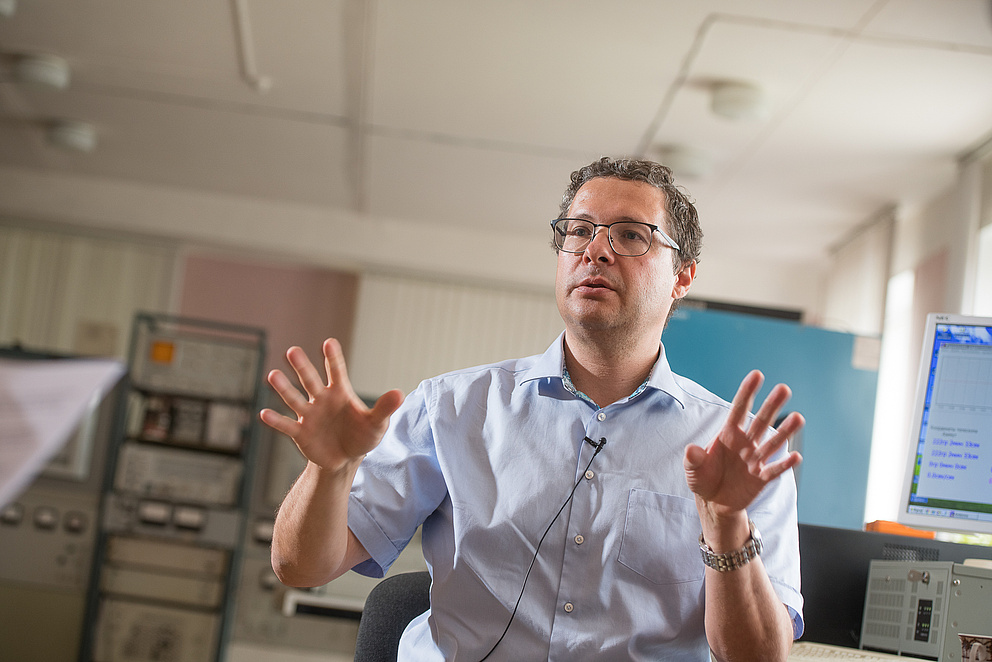

Contact
Press, Communications and Marketing
Tel.: +49 228 833-144
Fax: +49 228 833-441
presse[at]avh.de
Students and university staff loudly demonstrated against the planned amendments to educational legislation in Russia. The Professors of the Russian Academy of Sciences (RAN) wrote a letter of protest. In a personal exchange of views with the Committee on Science, Education and Culture of the Federation Council, Yuri Y. Kovalev, Ambassador Scientist of the Humboldt Foundation, advocated international exchange and made the case for autonomy and freedom of science and teaching. In vain: from now on any public activity classified as ‘educational’ must be coordinated with the authorities. The law has already been signed by president Putin. Astrophysicist Yuri Y. Kovalev explains the fears that accompany the tightening of the law.
Humboldt Foundation: What do you and your colleagues fear? What prompted you to write a letter of protest against the amendments?
Yuri Kovalev: The amendments stipulate that we teachers, researchers and science communicators need permission from the authorities for all sorts of educational activities such as informational events – in other words, for the communication of scientific findings – but also for international research collaboration. This means we’re going to have to deal with an enormous amount of administrative work. In addition to our regular work.
The law comes into force on 1 July 2021. The ministry has already developed new requirements, which confirm our worst fears. And even before that colleagues have already told me about various incidents, such as public events not being authorised. When you need permission from the ministry for every step you take and you have lots of hassles, at some point in time there are going to be persons and institutions that withdraw from being engaged.
What does this legislation mean for the Russian science community’s international collaborations?
The last paragraph in the amendments stipulates that every agreement that is signed with a foreign individual or institution must be confirmed by an official statement from the ministry. Just think of the delays, difficulties and missed opportunities that will cause! Some of my colleagues even fear that these restrictions will be accompanied by censorship. We are already hearing about foreign researchers prophylactically not being hired. Just in case.
The authorities argue that the changes to the law are necessary because they protect Russia’s youth. What does that mean?
They talk about the negative influence foreign powers have on the minds of the younger generation, about racist attitudes and calls to commit suicide or acts of terrorism. However, Russia already has all kinds of laws that can be used to control or prosecute such activities.
As a result of the new rules, free scientific communication is in danger. At the same time, society has an enormous need for information and clarification from serious science. Can you imagine, Russia is one of the few countries in the world where a covid vaccination is available and still many Russian don’t want to be vaccinated. They distrust the government. In truth, we need to put a lot more energy into science communication but our legislative bodies want to limit it.
Why, in your opinion, don’t the senators in the Federation Council with whom you have spoken give priority to freedom of science? Russian science is strong. Where does this inclination to want to restrict international exchange come from?
Quite simply, politics come first for the Federation Council. This case is a sensitive matter. How can the Federation Council oppose a law that professes to protect the country and its young people against foreign influence? Everything else is not so important. This was made clear to us when we spoke with the senators.
I’d like to stress once again that we still haven’t received an answer to the question of why we still need these amendments. Why aren’t the existing laws sufficient to achieve their goals? We already have a lot of restrictions.
What do you expect from the international science community in this matter?
Patience and understanding in this complex situation.
What are your worst fears in the wake of the amendments?
This is just one incident in a series of events, including several recent amendments to the law which will definitely lead our country into dark times. I see these restrictions on science as a step backwards. They don’t directly prohibit anything, but they make many things more difficult. So we’re living in a grey zone.
Will researchers leave the country?
Researchers decide to work in a country or leave it for a number of reasons – and freedom is one of them. But it is probably not the one that tips the scale.
